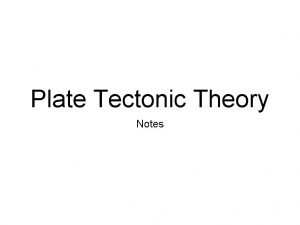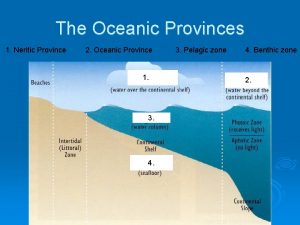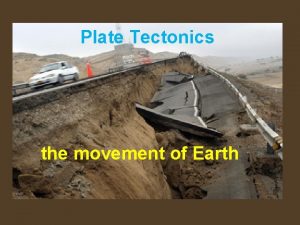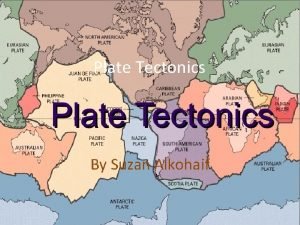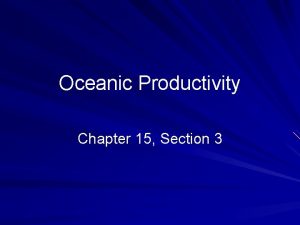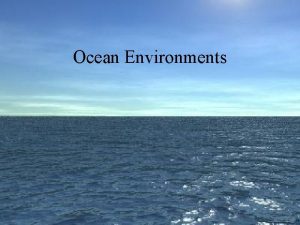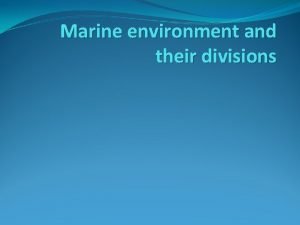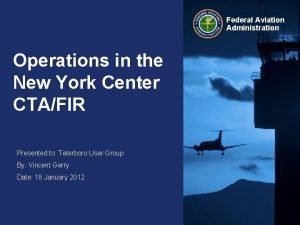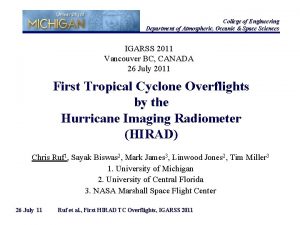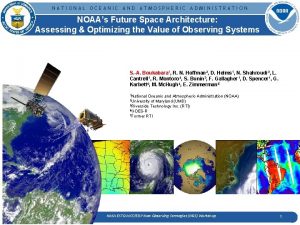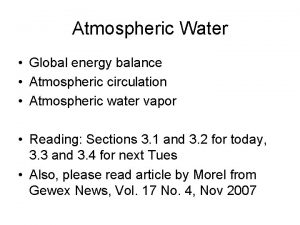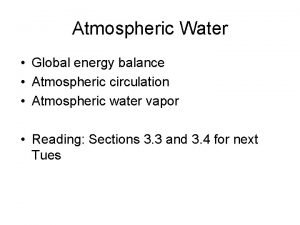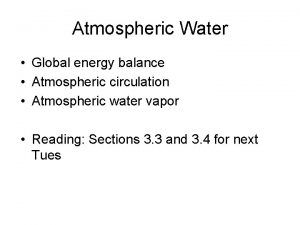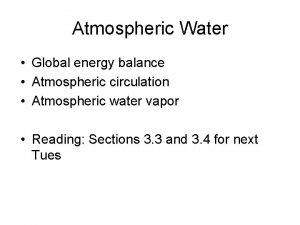College of Engineering Department of Atmospheric Oceanic Space









- Slides: 9

College of Engineering Department of Atmospheric, Oceanic & Space Sciences IGARSS 2011 Vancouver BC, CANADA 26 July 2011 Remote Sensing Pedagogy and The Wilheit Curve Chris Ruf University of Michigan, Ann Arbor

Motivation • Teaching remote sensing, and thinking about how it works in general, can be facilitated by explaining and understanding a few critical things… – The Forward Model: How sensor observations are related to geophysical parameters – The Sensitivity: How the observations respond to changes in geophysical parameters of interest (e. g. d. TB/d. Windspeed) – The Sensor Design: How the sensitivity varies with the type of observation (e. g. d. TB/d. Windspeed vs. freq, pol’z, θ i) – The Inversion Algorithm: To unscramble the forward model and estimate geophysical parameters from the observations, choose sensor channels with dissimilar sensitivities 26 July 11 Ruf, The Wilheit Curve, IGARSS 2011 /9

Statement of Problem • How does one capture both the dependence of the observations on the geophysical parameters and the interdependence of that dependence, from one sensor channel to the next? • Answer suggested in Wilheit, T. T. : A model for the microwave emissivity of the ocean's surface as a function of wind speed. IEEE Trans. Geoscience Electronics, GE-17, 244 -249, 1979. 26 July 11 Ruf, The Wilheit Curve, IGARSS 2011 /9

The Paper 26 July 11 Ruf, The Wilheit Curve, IGARSS 2011 /9

The Wilheit Curves 26 July 11 Ruf, The Wilheit Curve, IGARSS 2011 /9

Using the Curves as a Guide for Sensor Design High clouds, moderate vapor High SST, moderate wind High wind, moderate SST 26 July 11 moderate vapor, moderate clouds Ruf, The Wilheit Curve, IGARSS 2011 High vapor, moderate clouds /9

Are There Equivalent “Wilheit Curves” For Other Design Problems? • Example: How best to staff a remote sensing research project? • Project Requirements – Definition of scientific problem – Execution of the project – Obtaining funding, interaction with users, community outreach • Parameterize the staff members and identify the sensitivity of the requirements to each type of staff 26 July 11 Ruf, The Wilheit Curve, IGARSS 2011 /9

Wilheit Curves for The Human Touch in Project Staffing Definition of Problem TACTLESS 26 July 11 Project Execution NORMAL Ruf, The Wilheit Curve, IGARSS 2011 Community Engagement (funding, outreach, etc. ) DIPLOMATIC /9

Optimized Staffing • Obtaining funding, interaction with users, community outreach (highly tactful) – Chooses words carefully, thinks before talks, has some familiarity with the problem – e. g. Headquarters Program Manager • Execution of the project (moderately tactful) – Clear and succinct communication skills, follows instructions well – e. g. Engineering Support Team • Definition of the scientific problem (tactless) – Understands the science, speaks their mind, has general disregard for others – Any suggestions from the audience? 26 July 11 Ruf, The Wilheit Curve, IGARSS 2011 /9

